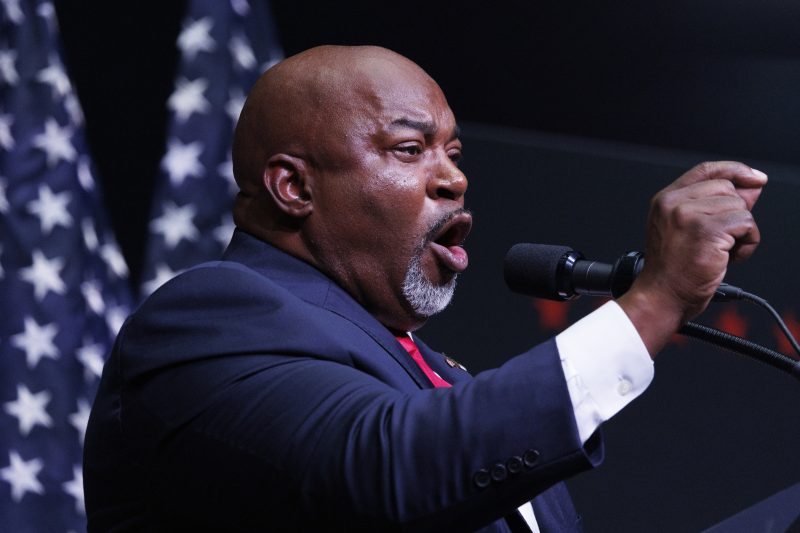In a recent turn of events, the conservative activist and North Carolina lieutenant governor, Mark Robinson, found himself amidst a scandal involving a now-defunct pornographic website he allegedly frequented. While one might expect backlash and outrage from his supporters, it seems that many within the Trump camp have met the news with a surprising sense of indifference and nonchalance.
The revelation of Robinson’s purported connection to a porn site has undoubtedly raised eyebrows and sparked debate across political spheres. However, for some Trump supporters, this scandal seems to have had little impact on their perception of the lieutenant governor. Many have chosen to downplay or dismiss the news entirely, preferring to focus on Robinson’s political actions and stances rather than his personal indiscretions.
This reaction raises interesting questions about the nature of political allegiance and the dichotomy between personal behavior and public performance. For some, Robinson’s conservative values and policy positions outweigh any moral failings he may have. This prioritization of ideology over personal conduct reflects a broader trend in modern politics, where tribalism and loyalty often trump ethical considerations.
Furthermore, the tepid response from some Trump supporters towards Robinson’s scandal highlights the complex relationship between morality and politics. While moral character has historically played a significant role in shaping public opinion of politicians, recent years have seen a shift towards a more pragmatic and results-oriented approach to governance. This shift has arguably contributed to a growing tolerance for personal transgressions among certain segments of the population.
Additionally, the reaction to Robinson’s scandal underscores the increasing polarization within the political landscape. As partisan divides deepen and tribal loyalties solidify, individuals may be more inclined to overlook or rationalize the misdeeds of their chosen representatives in order to maintain a sense of solidarity and cohesion within their ideological circles.
Ultimately, the mixed response to Mark Robinson’s porn site scandal among Trump supporters raises important considerations about the intersection of personal ethics, political loyalty, and public perception. While some may view the incident as a stain on Robinson’s character, others are willing to overlook it in favor of their allegiance to his political platform. This nuanced dynamic highlights the complexities of modern politics and the diverse factors that can influence public opinion in an increasingly polarized society.
